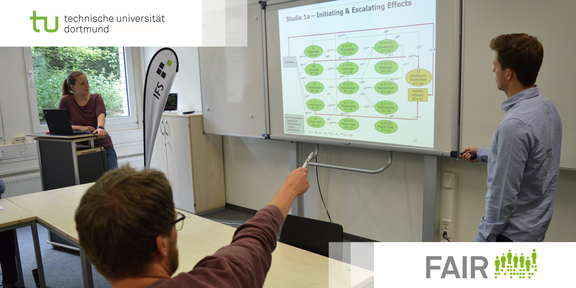IFS contributes to the FAIR Graduate Programme for Statistical Methods
- News
- Events

The FAIR Graduate programme in statistical methods started on August 1, and is targeted in particular at doctoral students in the social sciences, but is also open to post-doctoral students or doctoral candidates from other fields and universities.
The scientists involved in the FAIR project, including Elisabeth Graf and Jakob Schwerter from the IFS, offer weekly workshops on Thursday afternoons on various topics from statistical methodology with a high degree of practical relevance and hands-on practice. The programme runs until the end of September and comprises eight events.
On August 8, postdoctoral researcher Elisabeth Graf will lead her workshop on "Causal inference with observational data" and one week later, on August 15, postdoctoral researcher Jakob Schwerter will follow with his workshop "Introduction to Causal Machine Learning". The full programme and registration details can be found on the FAIR project website.
The FAIR project involves an interdisciplinary transfer of knowledge between the participating fields of statistics, data science, and empirical education, rehabilitation and social research. The interdisciplinary team in the FAIR profile focuses on the development, testing, and application of innovative approaches for dealing with large amounts of data and small numbers of cases in order to optimise prognosis and intervention. The scientists at the IFS are primarily involved in intervention research and analysing large-scale assessments in the education sector, as well as simulation studies on dealing with missing values and the use of tree-based methods for data with missing values.





